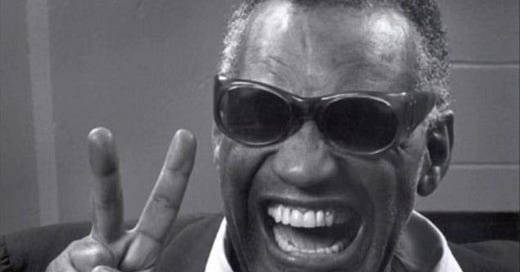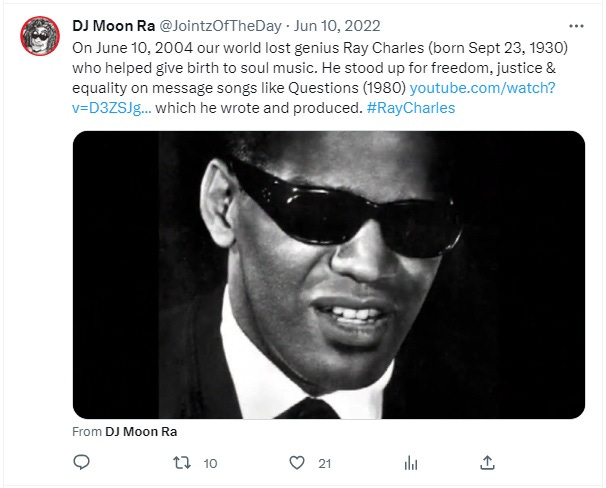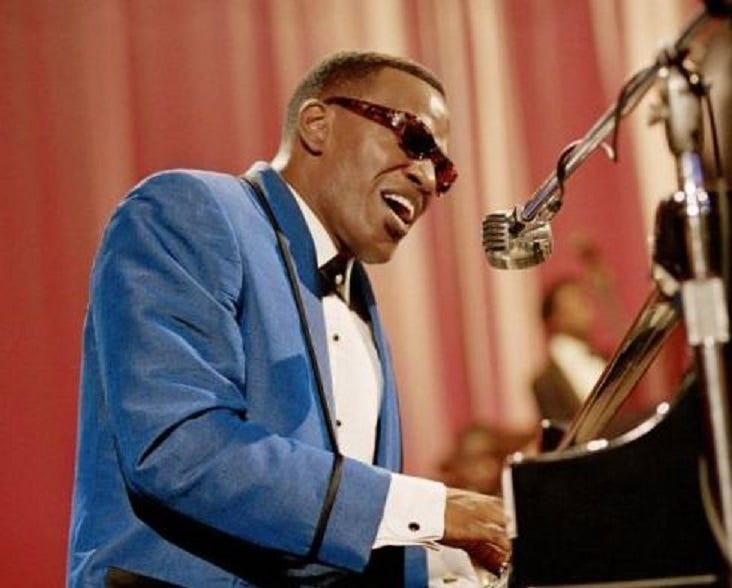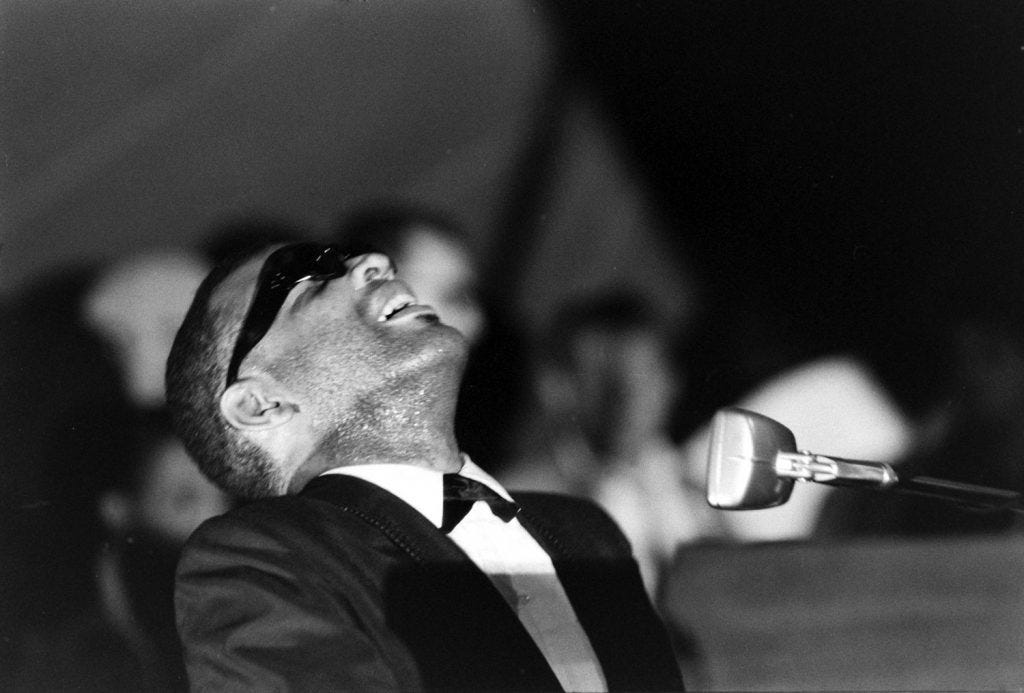Ray Charles (September 23, 1930 – June 10, 2004) – Questions (1980)
For his final album on Atlantic Records, Charles produced, arranged and wrote this powerful closing cut which tried to make sense of society's ills.
Watch full video on Twitter.
View most updated version of this post on Substack.
Ray Charles' music reached across lines to touch us all. He pioneered the mixing of musical genres in the 1950s, creating a gumbo of gospel and rhythm & blues that nearly singlehandedly spawned the sound eventually known as soul music.
While being interviewed on NPR's Fresh Air in 1998, Charles reminisced about the integrated world of the big bands and jazz musicians of the 40’s and 50’s, and talked of how he'd once toured with a “hillbilly” band known as the Florida Playboys.
In the early 60's, he began recording country songs, making it clear that for Charles, music knew no boundaries. And at a time when controversy could have been career ending for him, he showed the true meaning of courage by actively supporting the Civil Rights Movement - playing benefits and contributing his money and time.
Ray Charles performing at Salute to Freedom (March on Washington fundraiser), 1963
Above and beyond his overt support for civil rights, his authorship of anthems like “Hit The Road Jack” that were later adapted as freedom songs, and his personal friendship with Martin Luther King Jr., Ray Charles played another important role in helping end segregation forever. In the post-WWII era, Black and white musicians started making music together more often, appearing together on stage, and borrowing from each other's musical traditions. Artists like Benny Goodman, Johnny Ray, Frank Sinatra and Elvis Presley paid homage to Black music, while those including Chuck Berry, Little Richard, Nat King Cole and Sammy Davis Jr. crossed over to whites.
As musicians integrated, their audiences followed, and mixed crowds enjoying performances by mixed bands became more common. The cultural foundations of segregation were undermined, and leading the charge of this new movement in colorblind musical styles was Ray Charles.
At the close of the seventies, Charles returned to Atlantic Records, starting with True to Life (1977), an album of cover versions. The following year he released Love & Peace (1978). It featured the superb message songs “A Peace That We Never Before Could Enjoy” and “Give The Poor Man A Break,“ which reminded President Carter that Black voters had supported his election, and he needed to make good on his promises to them.
Charles' 1980 LP Brother Ray Is At It Again was his final release on Atlantic. He produced and arranged the album and also wrote the powerful closing track “Questions” which tried to make sense of society's ills.
The album also featured the very funky, socially conscious jam “A Poor Man’s Song,” which closed out the first side. It was co-written by Calvin Carter, James Blumenberg, and Milton Campbell, and arranged by Mike Post who composed countless TV theme songs.
Further info:
“Ray Charles: The 'Fresh Air' Interview,” interview by Terry Gross, Fresh Air, 1998.
“Ray Charles’ Fusion of Gospel and Blues Changed the Face of American Popular Music,” by Owen Edwards, Smithsonian Magazine, March 2006
#soul #funk #RayCharles








